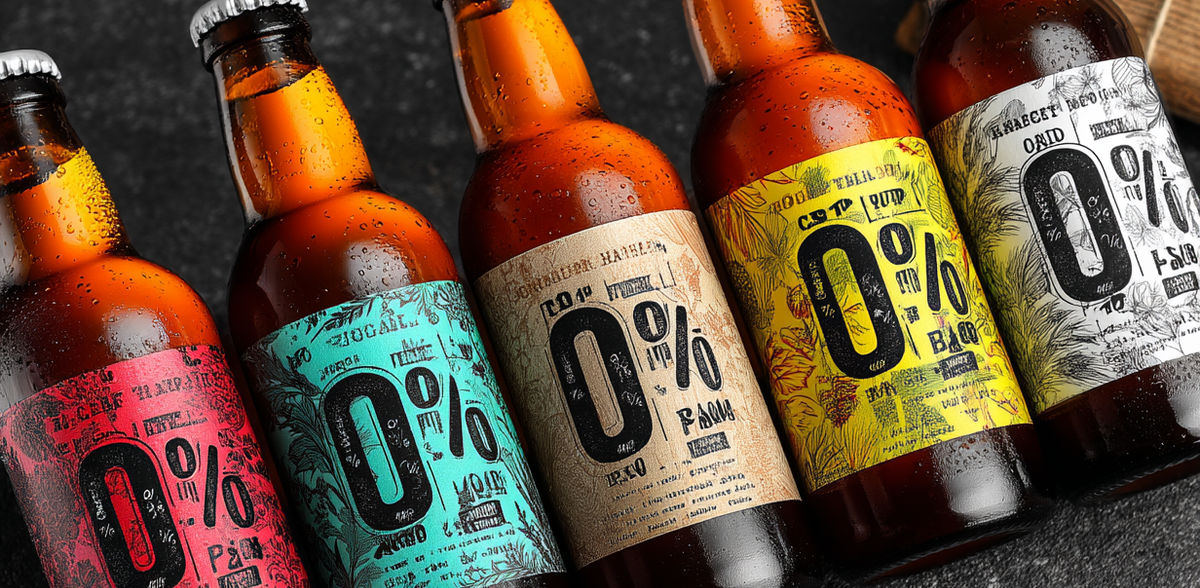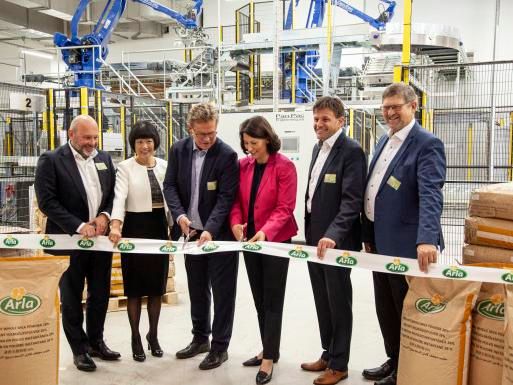Non-alcoholic beers continue to grow
Production has more than doubled in 20 years
On "German Beer Day", which is celebrated on April 23 to mark the birthday of the Purity Law, a comparatively young category takes center stage: non-alcoholic beers - first presented to the general public around 50 years ago at the "Leipzig Trade Fair" - are developing into a success story in Germany. According to the German Brewers' Association (DBB), the production volume of non-alcoholic beer and non-alcoholic mixed beer drinks has more than doubled in the past 20 years from 329 million liters in 2004 to around 700 million liters in 2024. The trend towards non-alcoholic beers continues unabated: The beverage category already accounts for nine percent of all beers in the retail sector. In terms of popularity, it has already worked its way up to third place, behind the undisputed market leader pilsner (48%) and the equally successful light beers (11%).
"Consumers are looking for high-quality, tasty beers that suit every situation, and we are delighted to be able to offer them this variety," says Christian Weber, President of the German Brewers' Association in Berlin. The high quality, but also the often isotonic and mineral properties ensure that more and more people are becoming enthusiastic about non-alcoholic beers. The leading association of the brewing industry expects the category to continue to grow and that one in ten beers brewed in Germany will soon be alcohol-free.
"The innovative strength of breweries plays a decisive role in this growth," says Weber. New brewing processes have improved the taste and quality of non-alcoholic beers enormously over the years, the alcohol can be extracted very gently using state-of-the-art equipment, and the beers retain their good taste and high quality. Non-alcoholic beers are also brewed as natural products in accordance with the Purity Law of 1516 - using only the four ingredients water, malt, hops and yeast. From classic varieties such as Pils, Weizen, Hell or Kölsch to fruity India Pale Ales and malty stouts - the selection of non-alcoholic beers is constantly growing. In Germany, which is the world leader in brewing non-alcoholic beers, there are now more than 800 different non-alcoholic brands. Stiftung Warentest also recently confirmed the high quality of non-alcoholic beers in Germany in a 2024 beer test. The testers' conclusion: "Pretty good when sober." Because many non-alcoholic beers are isotonic and mineral-rich, they have also long been an integral part of athletes' diets. In a study, the German Institute of Sports Nutrition demonstrated the effects of non-alcoholic beers as a "refreshing thirst quencher for effective regeneration after sport".
Background to the Purity Law
The Purity Law for beer was issued on April 23, 1516 in Ingolstadt, Bavaria, by Dukes William IV and Louis X as part of a state ordinance. Although the Purity Law initially only applied to the Duchy of Bavaria, it was adopted by more and more federal states after its promulgation on April 23, 1516 and has been the law throughout Germany since 1906. The Purity Law stipulates that only water, malt, hops and yeast may be used to produce beer. It stands for the preservation of a traditional craft technique and is also the oldest food law regulation in the world that is still valid today. In Germany, this has led to the development of a brewing art that has attracted worldwide attention over the centuries: Every day, almost 1,500 German breweries use just four natural ingredients to create a globally unique variety of over 40 different types and more than 7,500 individual beer brands. In 2020, "craft brewing" was added to the list of intangible cultural heritage by the German UNESCO Commission.
Note: This article has been translated using a computer system without human intervention. LUMITOS offers these automatic translations to present a wider range of current news. Since this article has been translated with automatic translation, it is possible that it contains errors in vocabulary, syntax or grammar. The original article in German can be found here.
Most read news
Topics
Organizations
Other news from the department business & finance

Get the food & beverage industry in your inbox
By submitting this form you agree that LUMITOS AG will send you the newsletter(s) selected above by email. Your data will not be passed on to third parties. Your data will be stored and processed in accordance with our data protection regulations. LUMITOS may contact you by email for the purpose of advertising or market and opinion surveys. You can revoke your consent at any time without giving reasons to LUMITOS AG, Ernst-Augustin-Str. 2, 12489 Berlin, Germany or by e-mail at revoke@lumitos.com with effect for the future. In addition, each email contains a link to unsubscribe from the corresponding newsletter.
































































